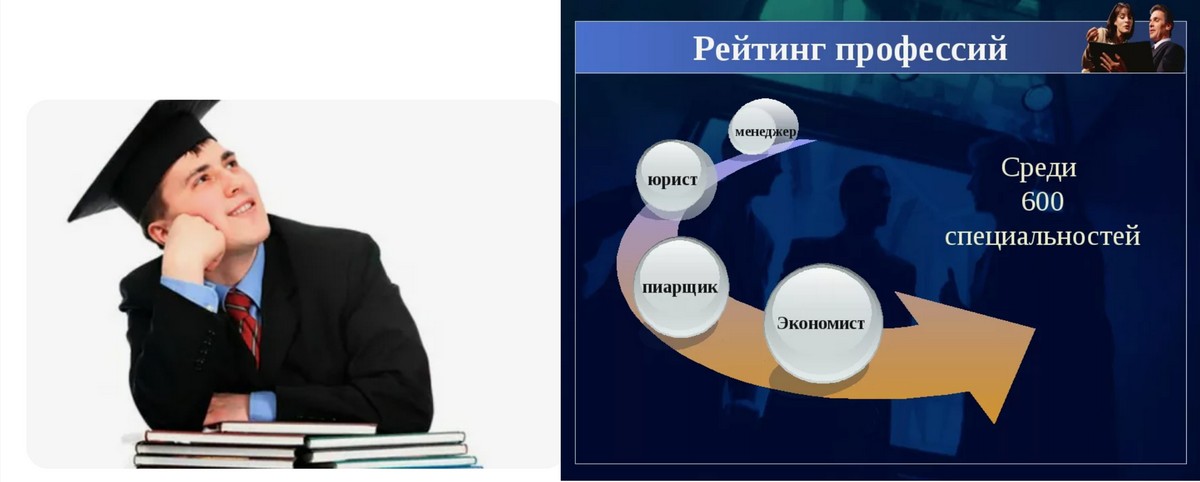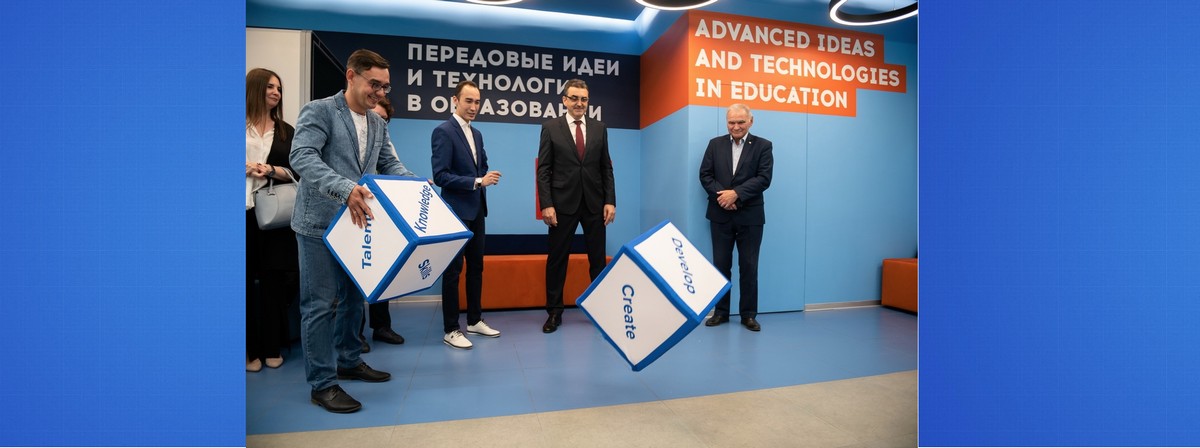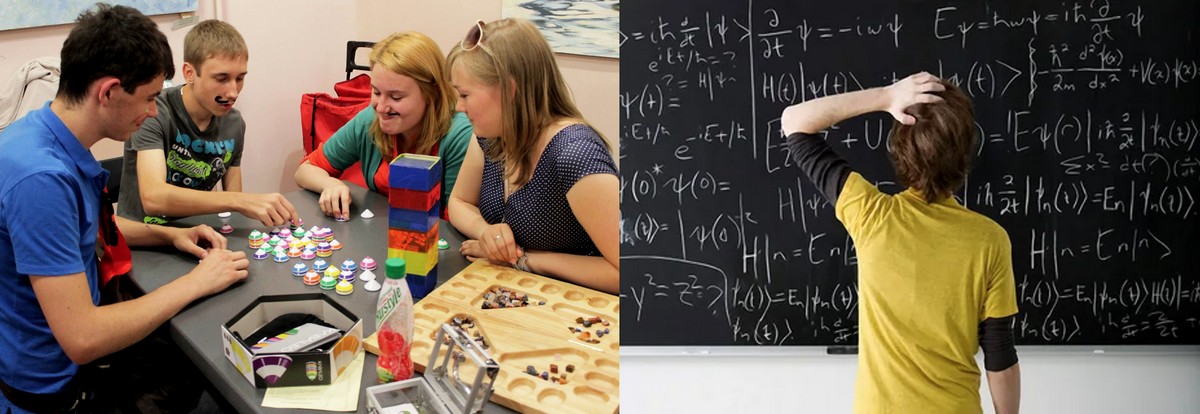In February, it will be nine months since TSU entered a pilot project to improve the Russian higher education system. Since the beginning of the 2023–2024 academic year, the University has launched 13 new educational programs. By January 2024, the list of TSU pilot programs was replenished with 30 new programs that will be launched in September 2024. In this issue, TSU Rector Eduard Galazhinskiy shares his thoughts and impressions on the progress of the experiment.
– Professor Galazhinskiy, what achievements does TSU have today regarding the experiment?
– As part of the experiment announced by the Ministry of Education and Science, we gathered a very creative and efficient team here at Tomsk State University. It is obvious to me that today we have a growing number of people who think and want something to change. And this is a very important achievement that results in many good initiatives. One of them is the creation of the TSU League of Educational Program Leaders (EPL League). Its members are keeping their fingers on the pulse of all pilots at TSU. They are constantly communicating online and meet weekly to discuss the progress of the experiment. This is necessary not only to avoid repeating the fundamentally incorrect or ineffective decisions made by others, but also to avoid reinventing the wheel over and over again. Yes, we are following a path that no one has paved before us, which means we are not immune to mistakes. The main thing is that the right to make mistakes does not become the norm. To ensure this, the University must always remain in a space of reflection, rethinking and even redefinition. This is the norm of university life. What we do requires constant refinement. And if we learn to treat our activities this way, it will ensure the university’s adaptation to constantly and rapidly changing conditions.
– What has changed since the experiment was launched?
– For objective reasons, funding for the project has decreased. In my opinion, it requires adjusting not only current tasks, but perhaps also the mission of our University for the coming years. The mission cannot be formulated for good. Especially in such turbulent times. It does not mean that the previous goal-setting was fundamentally wrong. It’s just that now it must be extremely specific and correspond not only to the nature of the classical university, but also to the current needs of our country. First of all, its economy and labor market, as well as its comprehensive security system. Let's say, previously, the task of ensuring the student's opportunity to self-determinate in the educational environment and acquire skills for further self-realization used to come first. Now we have been told that it is, of course, great that we have been promoting self-determination at state expense, but what does the state get fr om it?

There must be a focus on technological sovereignty. The country requires particular specialists. Rockets must take off; aircraft must be built. Our response that we are only creating the basis for the future, and then someone will get to finish training our graduates, will certainly not please anymore. Therefore, at this stage, in the context of the current challenges, the university needs to develop more relevant proposals. For example, “to become one of the leading universities in ensuring technological and personnel sovereignty.”
– What seems to be a problem with personnel sovereignty?
– The indicator of personnel sovereignty is not the total number of people with higher education diplomas, but the required number of people who are able to confirm their diplomas with real professional competencies. Currently, there are about 4.5 million students studying in the Russian Federation. It would seem like a pretty decent number. But if we keep in mind about 1 million of them are students who major in economics and law, this indicates a sharp imbalance in the labor market that the country may face in the coming years.
– How do you explain why young people show such interest in economics and law?
– I would say, it is mostly the interest of their parents. If the students and graduates of relevant faculties were sincerely interested in those, then top managers of the Central Bank of the Russian Federation and other large financial institutions with whom I have communicated would not complain about the quality of training of those who respond to vacancies. Infantilism occurs on new levels. Now a large number of young people cannot choose their career paths not only in high school, but even after graduating from the universities, which have become a kind of “social safety belt” for their parents: they keep their kids there until they grow up.
– What is your version of the current TSU’s priorities as of a classical university in the context of the ongoing educational experiment?
– It is the quality of education and its competitiveness in relation to tech-universities that have always had close ties with the relevant industries. Their graduates fulfil positions right after graduation and they are aware of wh ere they go after school in advance. A classical university is like a pyramid without a top. It provides fundamental knowledge, but also forms the foundations of professional thinking. For example, in biology. And then the graduate can become an ecologist, expert, researcher, teacher, administrator in a wide professional field related to the natural sciences. It means that young specialists finish their career determination by themselves. The choice of possible scenarios for self-realization is a huge advantage that classical higher education provides. Its downside is difficulties in finding a job in cases when such “completion” does not take place. Therefore, today it is important to complete this gestalt while young people are still part of a classical university. Those who graduate from our university should be immediately in demand by the market and, as a result, be financially accomplished.
Today, the Russian labor market gives us, as a classical university, a large window of opportunity. It is necessary to take advantage of this chance and quickly reorient the training of young specialists, for whom employers would literally be queuing up. They are ready to pay adequate money to young specialists, pay for their targeted training, open joint departments, educational offices and engineering centers. But they expect quick solutions and will be disappointed if we instead go around in circles. Therefore, we need to quickly create and refine options for a new educational model. To do that we have all the opportunities, including the new status of TSU as one of the six experimental educational platforms in the country. But it is not given to us forever, only for the duration of pilot projects. During this time, we need to manage to bring big employers as strategic partners of these projects. And when the experiment is over, they will already be firmly connected with us through joint programs. We have an excellent tool for implementing this approach — the EPL League.
– In addition to the task of improving the quality of education and competitiveness of TSU by involving the big fish partners in the university’s orbit, what other priorities do we have?
– Another priority for TSU is to become the undisputed leader in additional education in Russia. There is a basis for that, which is our Institute of Additional Education. It has initiated many unique educational projects. Particularly during the COVID pandemic. By taking on the main functions of one of the three operators of the federal project “Employment Promotion”, the Institute confirmed its ability to tackle projects of the largest scale. Over the course of three years, a unique educational infrastructure with the latest technologies of electronic education (E-Learning) and an equally unique team of specialists has been formed.

The TSU system of additional education has recently added another important structural unit — a branch in Yaroslavl, namely the Academy of Additional Education named after. N.P. Pastukhova. It should be noted that this is the only remaining budgetary institution of additional education in the structure of the Ministry of Education and Science. Accordingly, by taking such an institution under our responsibility, we receive the status of the main institution for additional education in the system of the Ministry of Education and Science.
The topic of digital departments is also very important for us. And here we need efforts on the part of the high-hume community. The connection between humanists and the labor market should be more specific and close. For example, historians have shown that they can be excellent analysts. Now they are implementing a project to study the ideas that the Russian citizens have about the connection between events of the past, present and future based on the analysis of big data from social networks. The results of this study will help to better understand the features of the national identity of the Russian citizens and will contribute to the development of various vectors and levels of domestic policy in the Russian Federation. Projects like this should be given priority.
Of course, we can take a long time to figure everything out. Let’s say, with the Bachelor’s Core, which is an endless process in terms of identifying opportunities for personal and professional self-determination. However, taking into account the shortage of resources, it is also necessary to set more specific tasks here. For example, launch certain programs for humanities students to give them the opportunity to be more competitive. And the new fundamentality also needs to be specified. If it is the “core” and it has shown its effectiveness, then it needs to be introduced to everyone. If it is critical thinking, then it is also necessary to show how its development is included in education.
It is also important to support artificial intelligence (AI) projects. We could even become pioneers in some areas. In particular, in the development of an artificial intelligence user code, which does not yet exist. The practice of using AI is already almost universal, but its norms and rules have not been developed. We can at least take the very first step, starting in higher education: yes, we do not prohibit students from using AI, but they must inform us about it. It is ethical, since this way there is no appropriation of the product of “not one’s own” intelligence. Artificial intelligence and genetics should become the focus of different directions. These are technologies that will determine a lot. Here, too, our leading universities will be identified. And we need to take these positions.
Strategic objectives also include training personnel for the Siberian region. In this regard, we, unfortunately, have lost something, and now we need to restore our positions. District, city and regional administrations have stopped hiring our graduate managers. They began to train their own personnel at corporate universities. The reason was our programs did not meet the needs and expectations of employers. And for a long time, we didn’t want to hear them. We became “great”, and the TSU management school turned into that same social safety place for children who had not immediately decided on their future profession to grow. The bar became lower, and so on. Currently, synchronization with the labor market is very important for us, and therefore in the near future we will discuss the issue of internships for students and teachers in companies. The latter is very important. If our people understand what companies do, then programs will begin to truly change. This is the only way we can become true leaders.
– In addition to new strategic tasks, there must also be current tasks that have always been and are there, but which acquire new relevance under the circumstances.
- Certainly. For example, English-language teacher training if TSU wants to export educational services. We have opened a branch in Indonesia with our IT programs and are thinking of opening one in the UAE. But to do that it is necessary for our teachers to be able to speak English. Otherwise, our plans will not come true. It also includes working with talented youth, which we have always been doing. Today we need to determine exactly how many talented young people we need to attract and. It is clear that the Moscow and Saint-Petersburg universities are hunting for them. But if we create interesting online programs for high school students and bring them to schools, then we will have enough talent. Current tasks also include revising the role of the methodologist in the educational process. In many faculties this position has been reduced in favor of a tutor. But it seems to me that a good methodologist is no hindrance to a good tutor. Both of them work to improve the quality of university education.
– When defining the TSU;s priorities, in addition to improving the quality of education, you also mentioned high competitiveness. What clear competitive advantages, in your opinion, could our University propose in the near future?
– It may sound unexpected, but one of them is the will and ability to go against the grain. We have long accepted as an axiom and norm that modern youth have a fixed mindset, short-term attention, and therefore knowledge should be presented in an “attractive and playful” form. As a result, not only the formats of training have changed, but also its content. Now I am referring to general trends in global and domestic education. Thus, we have created, in a sense, a vicious circle, cultivating this clip thinking, since it cannot become different (systemic, critical) if it is formed only with the help of entertaining learning formats.

I am increasingly convinced that in response to the hype and talk about the clip-based thinking of modern youth and gamification of learning, we need to respond with a policy of reasonable “coercion” and “violence.” If a person comes to us to study, he or she is automatically obliged to accept our rules and principles. There must be a certain basic level that the student will master without any “dancing with tambourines.” If this option doesn’t suit you, don’t come here. Parents also need to be guided in this way. I am sure that most of them will react positively to this university policy and will send their children to us “for settlement.” There are no nightclubs or entertainment here. We have serious disciplines, science and research. And for fun we have the online adaptive learning platform Plario and a tutor with the function of a psychologist, so that student life does not seem way too difficult. Perhaps this is precisely what could become one of our striking competitive advantages: all universities are moving towards game formats and nurturing clip-based thinking, while we teach seriously and present a certain picture of the world. That is, you need to take a certain position, otherwise everyone started “playing”, inventing some new “engineers”. And we have something to rely on — our scientific schools and university traditions of fundamental education. This is exactly the logic I would suggest.
– It sounds not just unexpected, but revolutionary in our times. The question is whether employers need young specialists with such a fundamental education. Today, they are all waiting for the quick, or even early entry into the labor market of people with very specific competencies and mastery of the latest technologies, and not a picture of the world.
– Employers will understand the importance of fundamental education if it is explained to them correctly. I recently had a conversation with the leadership of the Central Bank, which also needs graduates who can work with modern technologies. I said that if a person does not have an appropriate complex cognitive matrix, then how can he or she develop competencies for working with big data? And such a matrix is created, first of all, by studying at least five mathematical disciplines, including mathematical analysis. And the disputes on “why do we need mathematical analysis at the university for two whole years” are irrelevant here. The cognitive matrix is formed gradually, through working with complex ideal multidimensional objects. Without it, there is no basis for all these blockchains and algorithms for big data and AI technologies. That is, we need to learn how to quickly and convincingly explain the need for fundamentality. And then it will be clear why there is so much physics and mathematics at TSU. In general, we need to try, on the one hand, to take into account the interests of employers, and on the other, not to lose the fundamental nature of university education.
– If we sum up today’s conversation, what is the conclusion?
– In general, as Yuri Gagarin once said, the flight is being normal, the first stage has withdrew. Let's move on to the second stage. Now we need to take the next bold step — to develop our own standards along with industry leaders. The breakthrough in higher education, to which the leadership of the Ministry of Education and Science is calling us, is impossible on the basis of already existing licensed areas only. It is necessary to create new majors at the intersection of different educational fields, for example, medicine and physics, medicine and chemistry, and so on. We will focus on this problem in the near future. Now, the verification of coordinates of the pilot project, which is periodically carried out at the management committees, administrative and academic TSU councils, shows that it is necessary to quickly transfer our experimental “sandboxes” that have shown effectiveness into basic processes, as well as specify the educational objectives and mission of the University, focusing on the needs of employers and the country. If the goal setting on our part is correct, then the stakeholders will find the means to support it.
TSU Rector Eduard Galazhinskiy,
Member of the Council for Science and Education under the President of the Russian Federation
The conversation was recorded by Irina Kuzheleva-Sagan
